Central African Republic
The head of UN peacekeeping, Jean-Pierre Lacroix, met on Wednesday (20 Dec) the Central African Prime Minister Félix Moloua during his three-day mission in the Country.
Addressing the press in Bangui, Central African Republic (CAR), Lacroix said, "We are determined to continue working in the spirit of very close, very cordial, very positive cooperation that is animating the joint work between [United Nations Multidimensional Integrated Stabilization Mission in the Central African Republic] MINUSCA and the Central African Government, to work to see how we can go further, to ensure that our priorities are obviously those of the Government, of the Central African people, to consolidate peace, to reinforce the presence of State authority, to ensure that preparations for local elections take place in the best possible conditions."
The Central African Prime Minister Félix Moloua said, "This visit undoubtedly testifies to our commitment and determination to work effectively to strengthen the cooperation and communication system around the priorities defined in resolution 2709, in line with the objectives pursued by the Government, taking into account the pressing expectations of the Central African population with regard to the protection of civilians, support for the extension of State authority, the deployment of defense and security forces and the maintenance of territorial integrity, good offices and support for the peace process, including the implementation of the ceasefire and the APPR-RCA, and assistance for the immediate, safe and unimpeded delivery of humanitarian aid."
This morning, Lacroix went to Birao in the country's northeast with the Minister of the Interior, Henri Wanzet-Linguissara, and the head of the peacekeeping mission, Valentine Rugwabiza.
They interacted with the local population and visited Sudanese refugees at the Korsi site.
Lacroix paid tribute to the resilience and generosity of Central Africans and the authorities towards the refugees and praised the collaboration between the Mission and humanitarians, who continue to assist people crossing the border.
Rugwabiza noted that peacekeepers would continue to patrol in the area to provide protection.
Responding to concerns of the local population on the need to secure border areas such as Am-dafock and Tissifongoro, she announced that patrols to secure these areas would be carried out before the end of the year.
Back in the capital, Bangui, Mohamed Ag Ayoya, the Humanitarian Coordinator in the Central African Republic, has allocated $13 million to address the most urgent needs of about 150,000 internally displaced people and returnees – and host communities.
This allocation from the Central African Republic Humanitarian Fund will assist the most vulnerable in the southeast of the country and others in hard-to-reach and underserved areas – where thousands of people need vital support, including health, nutrition, shelter, and clean water.
This region, particularly the Haut-Mbomou prefecture, has seen the humanitarian and security situation worsen since March amid clashes between armed groups.
The Humanitarian Coordinator called on the parties to protect civilians and uphold their obligations under international humanitarian law.




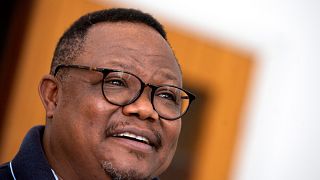
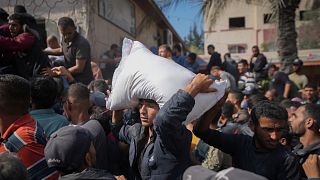

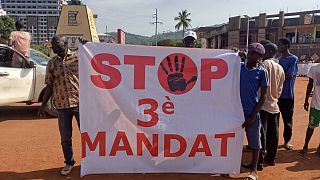
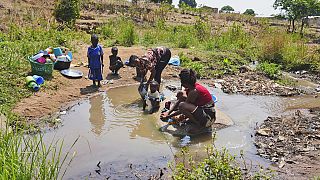
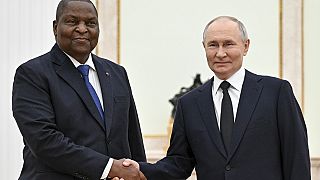

03:15
Cologne's Carnival: joyful revelry meets vigilant security measures
01:39
UNFPA provides safe spaces for women in CAR
01:32
Surviving hardship: Sudanese refugees struggle in Korsi camp
01:10
Central African Republic and Russia strengthen political ties
01:58
Putin and Touadera explore deeper military cooperation in Moscow
Go to video
Burkina Faso’s leader attends Ghana inauguration armed